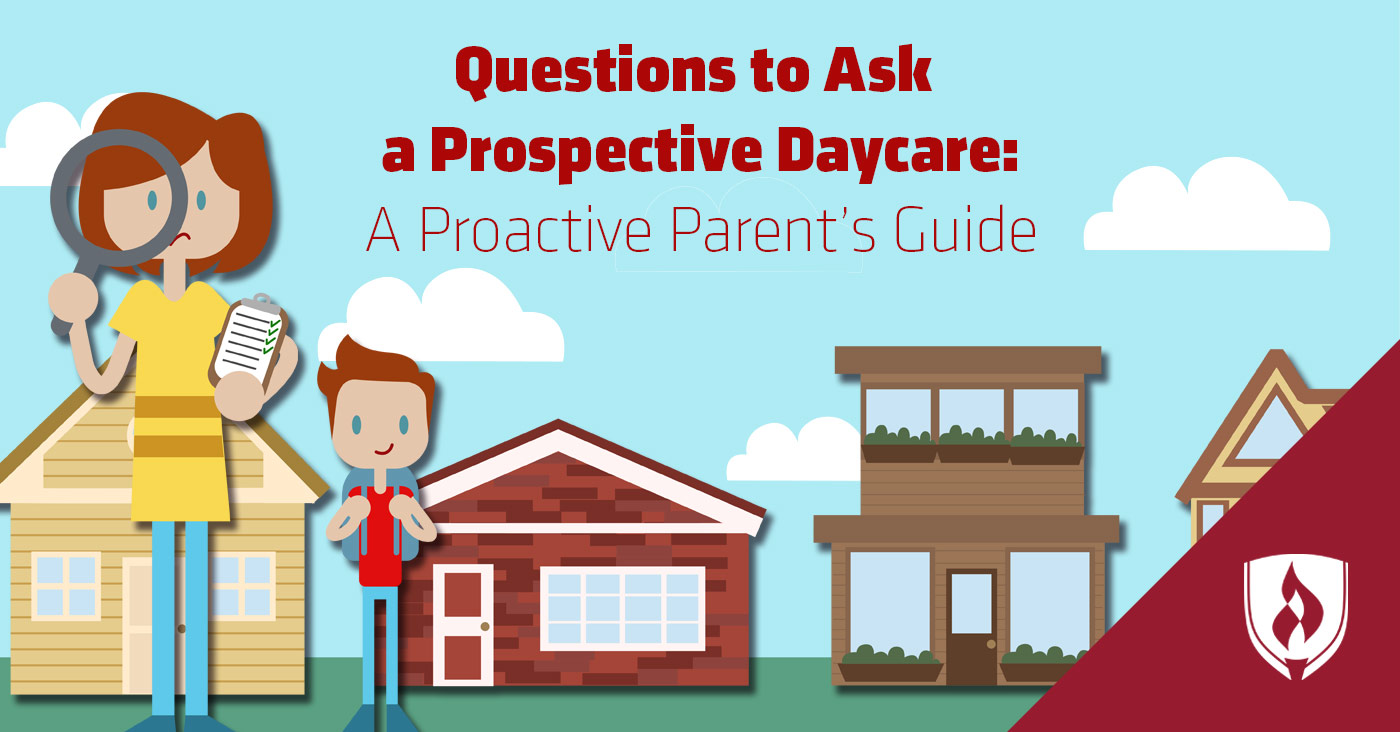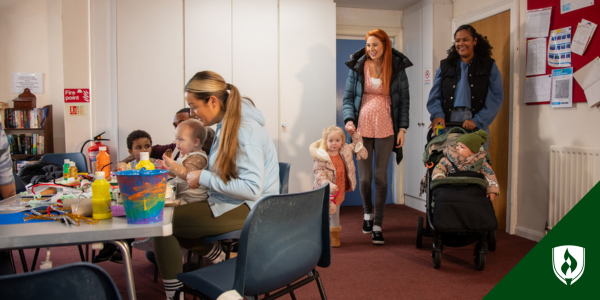Questions to Ask a Prospective Daycare: A Proactive Parent's Guide
By Ashley Brooks on 09/19/2017

Few things are more nerve-wracking than leaving your child with a new daycare provider—especially if you’re unfamiliar with the process of interviewing daycare centers. You’ve heard horror stories of childcare providers that seemed reputable but turned out to be just the opposite. You’d like to think you’d never make the mistake of choosing the wrong childcare provider, but how can you know for sure when they all look the same at first glance?
Whether it’s your first time choosing a daycare, or you’re nervous about switching after years of building trust with your previous child care provider, you need peace of mind that you’re leaving your child in good hands. We spoke with experts to uncover the best questions to ask daycare providers so you can rest assured that your little one is spending their days in a safe and caring environment.
6 Questions to ask daycare providers
You’ve toured a handful of daycare centers, but you fall silent when they ask if you have any questions. Not anymore—take a look at these six questions the experts say every parent should be asking their prospective daycare provider.
1. Are you licensed?
This question can make the biggest impact on your hunt for a daycare provider. While unlicensed providers may be more affordable, they are unregulated and may not adhere to basic safety standards like child-to-staff ratios and staff background checks.
However, the cost savings of a well-run but unlicensed center may be worth it for some families.
“The best option isn’t always going to be the one that has all the bells and whistles because it’s simply out of your price range. Your child won’t benefit from a family that’s stressed out because of money,” says Ashley Jefferson, play advocate at Play Enthusiasm. You should carefully weigh the pros and cons of both options when you interview daycare providers.
2. How long have your staff members been working here?
Young children thrive when they receive consistent care from the same primary caregivers. PBS shares that “It takes time and consistent contact for babies to intimately know and trust caregivers outside the family circle,” which makes it beneficial if your daycare center has a track record of long-time staff members who can build relationships with your child.
High turnover rates may also be a red flag, warns Jefferson. If the staff doesn’t want to stay at the center long-term, it could be a sign that they’re not being treated fairly or aren’t given enough time to prepare developmentally appropriate activities for the children.
3. What is your center’s environment like?
A clean, well-organized center can tell you a lot about the type of care your child will receive—and the same is true of a messy, disorganized space. Jefferson recommends paying close attention to a daycare’s environment and layout when you visit, as well as asking the staff about where the children typically spend their time.
Your daycare center should be clean and open, with plenty of room for children to play. Avoid centers with too many bold patterns and bright colors—they may seem like fun, but they can be overstimulating to children. Be aware of any nooks and crannies where children could escape adult supervision and other safety hazards like open outlets or dangling window cords. An ideal daycare center will also have a safe outdoor space for children to play, according to the Child Care Center Design Guide.
4. What is your discipline policy?
When it comes to handling discipline, a daycare center’s highest priority should be safety for all the children in their care.
“The childcare director should be able to highlight the facility’s disciplinary policy, child abuse staff training and how often the staffers are monitored and or reviewed,” says Jessie Marie, founder and CEO of Daycare Staffers Placement Agency.
No one wants to think about a daycare provider harming a child, but abusive situations or discipline policies you may not agree with are too important to avoid discussing with a potential provider.
5. Do you have an open-door policy?
It’s important for you to develop a trusting relationship with your daycare provider, and knowing that you’re welcome to stop by and volunteer in the classroom can be a big step in accomplishing this.
“An open-door policy for parental involvement often makes for a great partnership and holds long-term benefits for the child,” Jefferson says.
Jessie Marie adds that an open-door policy allows you the freedom to drop by and monitor your child and their care provider at any time. Stopping by every day isn’t realistic, but it can increase peace of mind to know that you’re always welcome to see your child’s daycare environment without advance notice.
6. What type of learning structure do you use?
Your child begins learning on day one. Even at this young age, it’s important for her to have access to developmentally appropriate activities and free play. Choosing the right daycare provider can make a big difference in your child’s early learning and kindergarten readiness.
“Project-based learning is essential in early childhood, and there should be room for projects that are spread over a span of a few days every now and then,” Jefferson recommends. Some daycares may also follow popular models like Montessori or Reggio Emilia as they support your child’s early education.
The best choice for your child
Now that you have these questions to ask daycare providers to get you started, you can gather the information you need to give your child the best start possible.
Choosing your child’s daycare provider is just the first of many decisions you’ll have to make regarding their development and education. Early childhood education is more than just fun and games. Learn more with our article, 4 Reasons You Can’t Ignore the Importance of Early Childhood Education.
RELATED ARTICLES:




